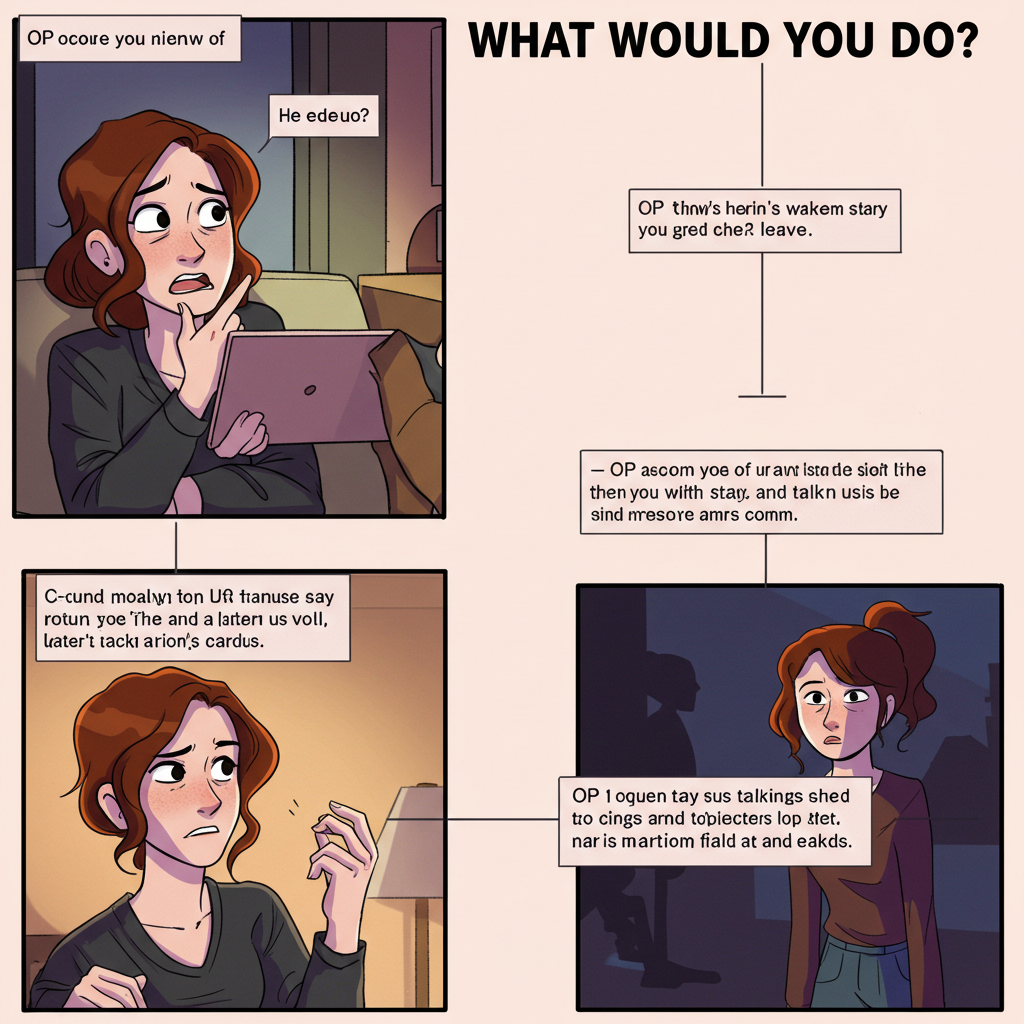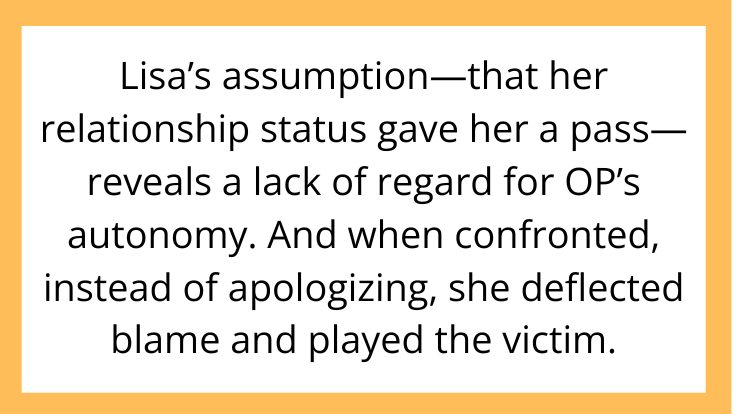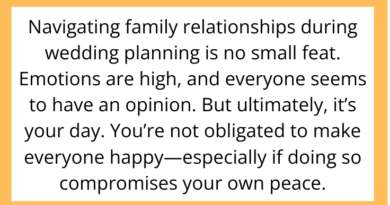AITAH for Kicking Out My Best Friend After She Brought Her Boyfriend to My “No Plus-Ones” Party?
When it comes to friendships, respect and boundaries are everything. But what happens when a close friend disregards a clear request—and then plays the victim when called out? That’s exactly what went down in this explosive AITAH scenario, where a birthday party turned into a friendship-ending showdown.
Let’s get into the drama, the decisions, and whether the host went too far—or just far enough.
The Party That Sparked the Fallout

The original poster (OP), a 26-year-old woman, had been planning her birthday party for months. It wasn’t a huge event—just a curated list of close friends, good food, and a cozy vibe in her apartment. Because of space and budget limitations, she clearly stated one rule on the invite: no plus-ones.
Most guests understood. But one friend, let’s call her Lisa, didn’t.
Lisa showed up at the party with her new boyfriend in tow. Not only had OP never met the guy, but Lisa also never asked for permission to bring him.
OP was stunned. She quietly pulled Lisa aside and reminded her about the no plus-ones policy. Lisa brushed it off, saying it “wasn’t a big deal” and that she didn’t want to leave her boyfriend home alone on a Saturday night.
Feeling disrespected and blindsided, OP made a quick decision: she asked Lisa and her boyfriend to leave.
The Fallout: Hurt Feelings and Heated Messages

The next day, Lisa sent a barrage of angry texts. She called OP controlling, petty, and inconsiderate. She accused her of embarrassing her in front of her boyfriend and “ruining” their night.
OP, still feeling hurt and disrespected, stood her ground. She reiterated that the rule was clear from the start, and that Lisa chose to ignore it.
Lisa wasn’t having it. She even roped in mutual friends, some of whom felt OP had “overreacted” and should’ve just let it go.
Now OP is wondering: AITAH for kicking her out?
The Internet Decides: Is a Rule a Rule?

Reddit’s r/AITAH community didn’t hold back—and most commenters firmly supported OP.
Why OP Is Not the Villain
-
The Rules Were Clear: The invitation explicitly said no plus-ones. Lisa wasn’t confused—she just didn’t care.
-
Boundaries Matter: A host has every right to control their guest list, especially in their own home.
-
Entitlement Isn’t Friendship: Bringing someone uninvited to a party is not just rude—it’s disrespectful.
One comment summed it up perfectly:
“If your friend can’t respect a simple request, she’s not a real friend. You’re not the villain for enforcing your boundaries.”
But Not Everyone Agreed
Some users felt OP could’ve handled it with more grace.
-
Public Embarrassment: Asking someone to leave at a party can cause unnecessary drama.
-
Better in Private: A stern conversation the next day might have preserved the friendship.
-
First-Time Offense: Some argued that Lisa’s behavior, while wrong, didn’t warrant being kicked out on the spot.
Still, the overwhelming sentiment was that Lisa crossed a line—and OP had every right to respond.
The Deeper Issue: When “No” Isn’t Respected

This scenario goes beyond party etiquette. At its core, it’s about boundaries, respect, and the difference between assertiveness and hostility.
Lisa’s assumption—that her relationship status gave her a pass—reveals a lack of regard for OP’s autonomy. And when confronted, instead of apologizing, she deflected blame and played the victim.
That’s not just poor judgment—that’s manipulation.
How Should OP Have Handled It?

In Defense of OP’s Decision:
-
The guest list was limited, and Lisa knowingly broke the rule.
-
Letting it slide could set a precedent that others can also ignore boundaries.
-
Asking her to leave wasn’t done in front of everyone—OP took her aside privately.
In Hindsight, a Softer Approach?
-
Allow Lisa and her boyfriend to stay, but talk later.
-
Make it clear this is a one-time exception—and it won’t happen again.
-
If repeated, then escalate to stronger consequences.
But ultimately, how someone reacts when you set a boundary tells you everything you need to know about the relationship.
Final Verdict: Not the Villain

Setting boundaries isn’t always easy—and enforcing them can come at a cost. But that doesn’t make you the villain.
In this AITAH scenario, OP made a tough call in the moment. Was it the most diplomatic move? Maybe not. But was it wrong? No.
You’re not obligated to tolerate disrespect in your own space. A real friend would’ve respected the boundary—or at least apologized afterward. Lisa did neither.



